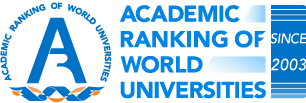Founded in 1865 in Worcester, Mass., Worcester Polytechnic Institute is one of the nation's first engineering and technology universities. Today WPI is a midsize research university centered on engineering, science, technology, and mathematics, with strong academic programs in the arts and humanities, the social sciences, and business. Its 14 academic departments offer more than 50 undergraduate and graduate degree programs, leading to the BA, BS, MS, MEng, MBA, and PhD. WPI places a high premium on excellence in undergraduate education, with rich student-faculty interaction and a distinct, rigorous project-based curriculum. In addition to filling a humanities and arts requirement, each WPI undergraduate must complete at least two significant projects, one in the major field of study and one that addresses an open-ended problem at the intersection of science, technology, and society. Through these projects, students demonstrate their proficiency as they apply their classroom knowledge to real-world problems. They gain an appreciation for how their work has an impact on a local, national, and even global level. At WPI, first-year students can participate in the Great Problems Seminar, a two-course introduction to university-level research and projects focused on themes of current global importance. The university's innovative Global Projects Program provides students the opportunity to make a difference in communities and organizations around the world in one of the more than 40 project centers throughout the Americas, Africa, Asia-Pacific, and Europe. Students benefit from WPI’s deep experience in off-campus opportunity. WPI established its first off-campus residential project center in 1974 in Washington, D.C., and its first international center in 1987 in London. About two-thirds of each graduating WPI class has traveled off campus to complete projects, half going overseas. Working independently or collaboratively with faculty or industry partners, graduate students are challenged to engage in research that matters, offering contributions that lead to breakthroughs in problems facing society. Students are inspired to consider the big picture and to think like entrepreneurs. They look for solutions that aren’t always obvious but will have the greatest technical and social impact. Faculty members work collaboratively with students on interdisciplinary research that seeks solutions to important and socially relevant problems in fields as diverse as life sciences, bioengineering, energy, information security, materials processing, and robotics. With thriving music and theatre departments, WPI students have opportunities to explore their creative sides, too. Quirky traditions, like the annual Pi Day festivities or celebrating the birthday of its mascot, Gompei the goat, foster a sense of community. Notable WPI academic and research centers include the Metal Processing Institute, the largest industry-university alliance in North America. WPI is making a significant investment in life sciences-related research and in the economic development of its home city by jointly developing Gateway Park, an 11-acre mixed-use, life sciences-based campus adjacent to downtown Worcester. The first building at the site, the 125,000-sq.-ft. Life Sciences and Bioengineering Center, houses the university's graduate research programs in these disciplines. A second building houses, among other tenants, its Biomanufacturing Education and Training Center; Fire Protection Engineering Laboratory, which supports one of the world's only graduate programs in fire protection engineering; and Foisie Business School. WPI's 35,000+ alumni are located throughout the U.S. and in more than 100 countries. WPI alumni have been responsible for many world-changing innovations, among them the liquid-fueled rocket; stainless steel; the airbag safety system; and the Area Rule, which made supersonic flight practical.

